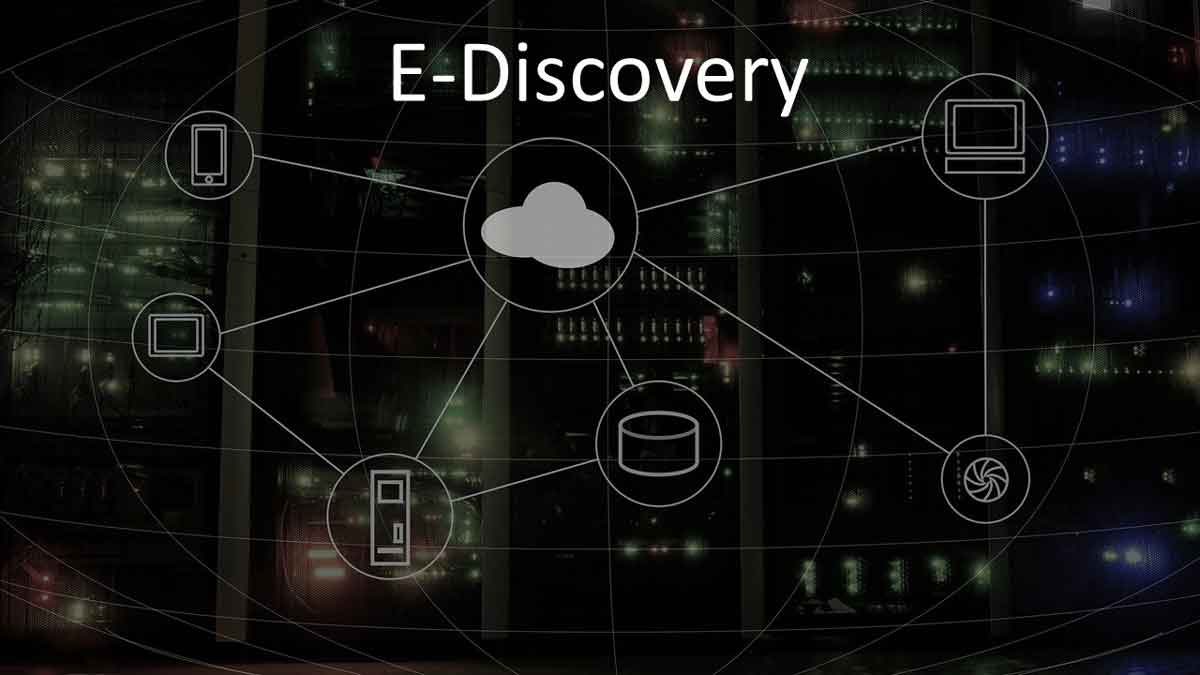In today’s business world, information is everything. Every piece of data has its value, from emails to documents, and enterprises must keep them secure while ensuring they are easily accessible. However, when faced with a legal or regulatory request for information, many businesses struggle to locate and produce the necessary data quickly and efficiently. This is where the Enterprise Content Management Platform comes in, providing an efficient solution for managing e-discovery requests.

What is E-Discovery?
Electronic discovery, or e-discovery, is compiling, analyzing, and generating electronically stored information (ESI) in response to a legal or regulatory request for information. This can include emails, documents, spreadsheets, social media posts, and other types of digital data. E-discovery is critical to litigation and regulatory compliance, as failure to produce relevant information can lead to legal and financial penalties.
Challenges of E-Discovery:
Managing e-discovery requests can be challenging for businesses due to the sheer volume of data they generate and store. Additionally, data can be stored in multiple locations, including on-premises servers, cloud services, and mobile devices, making it difficult to locate and collect. Furthermore, data can be in various formats, making it challenging to review and produce promptly and efficiently.
Benefits of an ECM Platform for E-Discovery:
An Enterprise Content Management Platform provides several benefits to businesses when managing e-discovery requests. These benefits include:
1. Centralized Storage: An ECM platform provides a centralized location for storing an enterprise’s digital data. This enables businesses to quickly locate and collect the necessary data in response to an e-discovery request.
2. Advanced Search and Retrieval: ECM platforms include advanced search capabilities, allowing businesses to quickly locate the data needed for e-discovery requests. This saves time and reduces the risk of missing critical information.
3. Secure Access: ECM platforms provide secure access to data, ensuring that only authorized individuals can view and access sensitive information. This reduces the risk of data breaches and ensures compliance with privacy regulations.
4. Improved Collaboration: An ECM platform enables teams to collaborate on e-discovery requests, with the ability to assign tasks, track progress, and share documents. This improves efficiency and ensures that everyone is on the same page.
5. Cost Savings: By centralizing data storage and providing advanced search and retrieval capabilities, this platform can reduce the cost of e-discovery by reducing the time and resources needed to locate and collect data.
Implementing an ECM Platform for E-Discovery:
Implementing an ECM platform for e-discovery requires careful planning and execution. The following steps should be taken:
1. Identify Relevant Data: Identify the data types relevant to e-discovery requests. This may include emails, documents, spreadsheets, social media posts, and other types of digital data.
2. Determine Data Locations: Determine where the relevant data is stored. This may include on-premises servers, cloud services, mobile devices, and other locations.
3. Evaluate ECM Platforms: Evaluate different platforms to determine which fits your business needs best. Consider storage capacity, search capabilities, security features, and cost.
4. Design and Implement ECM Platform: Design and implement the ECM platform, considering the types of data being stored and the locations where it is stored. Ensure that the platform is configured to meet regulatory and compliance requirements.
5. Train Employees: Train employees on how to use the platform for e-discovery requests. This includes how to locate and collect data, how to collaborate with team members, and how to ensure data security and privacy.
Conclusion:
In conclusion, implementing an ECM platform for e-discovery can provide significant benefits to businesses when it comes to managing legal and regulatory requests for information. By centralizing data storage, providing advanced search and retrieval capabilities, ensuring secure access, improving collaboration, and reducing cost, an ECM platform can help businesses streamline the e-discovery process and ensure compliance with regulatory requirements.
In today’s digital age, businesses must be prepared to handle legal and regulatory requests for information. By implementing an ECM platform for e-discovery, businesses can streamline the process, reduce the risk of missing critical information, and ensure compliance with regulatory requirements.
